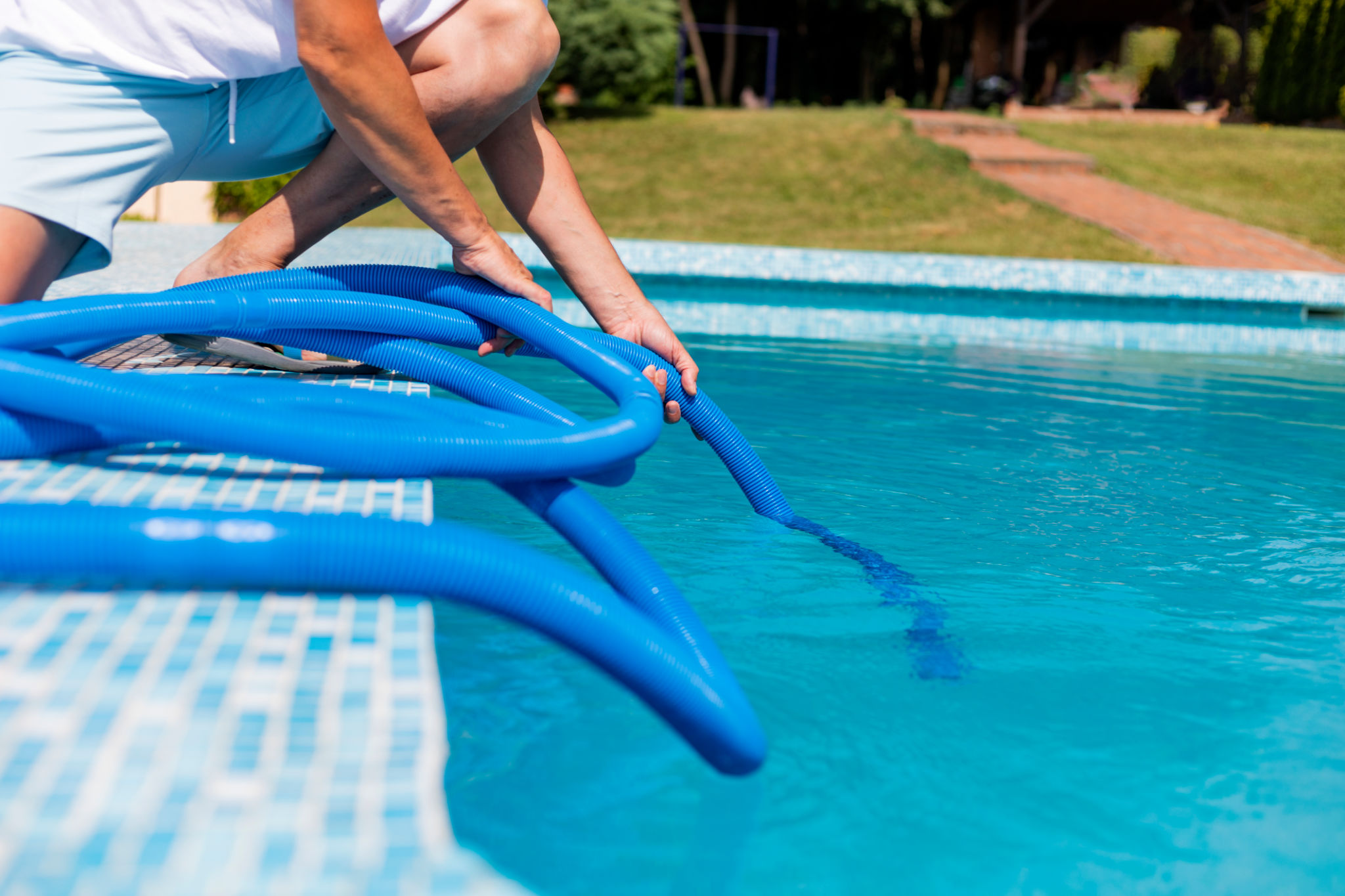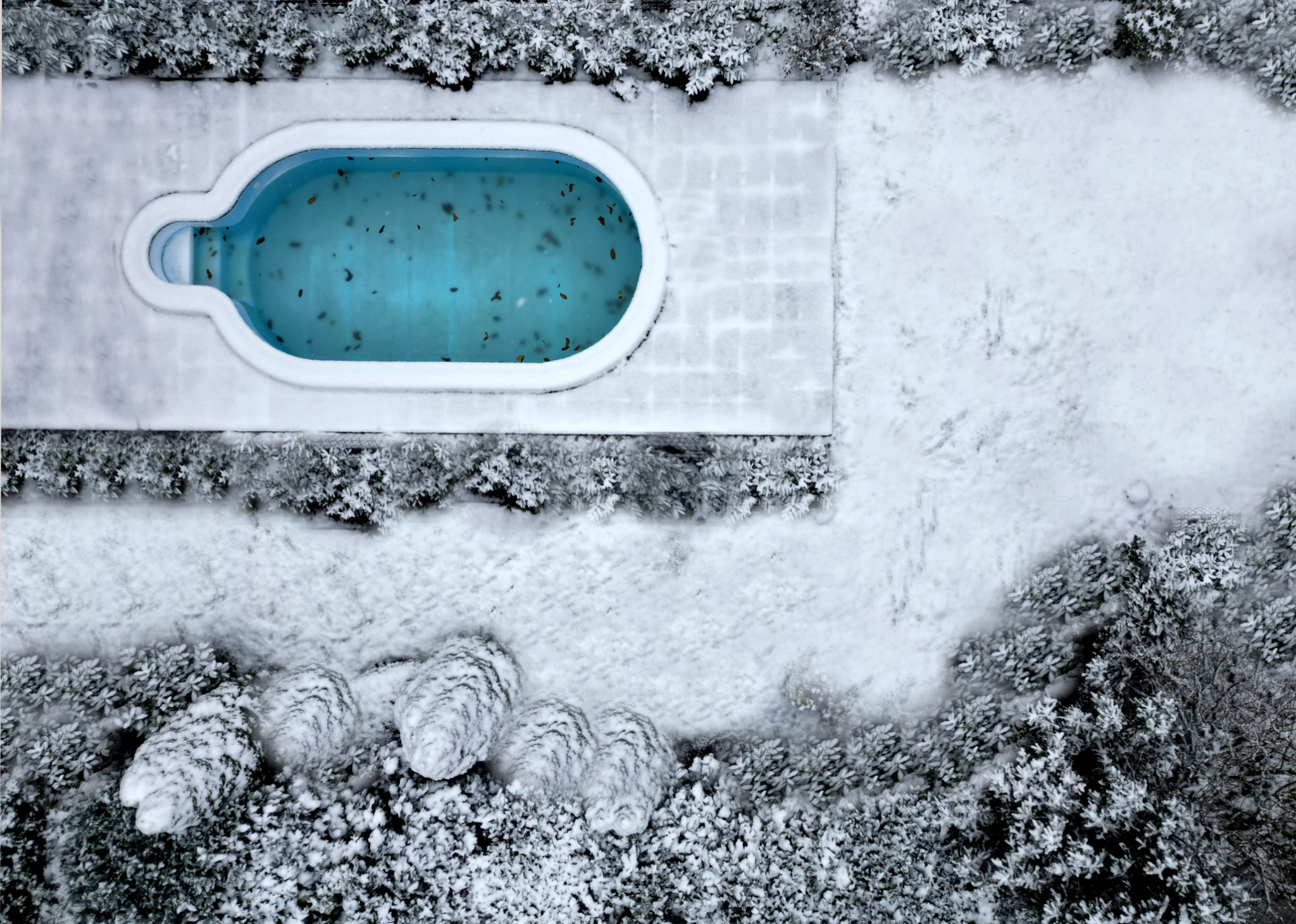The Ultimate Guide to Swimming Pool Maintenance: Tips for Pristine Waters
Regular Cleaning and Skimming
Maintaining a clean swimming pool starts with regular cleaning and skimming. Leaves, debris, and insects can quickly accumulate on the water's surface, making it essential to skim the pool daily. Use a long-handled net to remove these impurities, ensuring the water stays clear and inviting.

Additionally, vacuum the pool weekly to remove dirt and sediment that settles on the bottom. Whether you use a manual vacuum or an automatic cleaner, consistent vacuuming is crucial to maintaining the pool's cleanliness and preventing algae buildup.
Balancing Water Chemistry
To keep your pool water pristine, it's vital to balance its chemistry. Test your pool water at least once a week using a reliable test kit. The key components to monitor include pH levels, alkalinity, and chlorine concentration. Ideally, pH should be between 7.2 and 7.6, alkalinity between 80-120 ppm, and chlorine levels between 1-3 ppm.
Adjust these levels as needed using pool chemicals. If the pH is too high or low, it can lead to skin irritation and damage to pool equipment. Keeping water chemistry balanced not only ensures comfort for swimmers but also prolongs the life of your pool.

Filter Maintenance
Your pool's filter system plays a crucial role in maintaining water clarity. Whether you have a sand, cartridge, or diatomaceous earth (DE) filter, regular maintenance is necessary. Clean or backwash your filter according to the manufacturer's instructions, typically every few weeks. A clean filter helps in efficiently removing dirt and impurities from the water.
Inspect the filter for any signs of wear or damage. Replacing or repairing faulty parts promptly prevents further issues and ensures your pool operates smoothly.
Shock Treatments
Even with diligent care, pools can sometimes develop cloudy water or an unpleasant odor. Shocking the pool—also known as superchlorination—helps eliminate contaminants like bacteria and algae. Perform a shock treatment every couple of weeks or after heavy pool use to maintain optimal water quality.

Choose a shock product compatible with your pool type and follow the instructions carefully. Remember to keep the pool closed until chlorine levels return to safe limits after shocking.
Maintaining Water Levels
Fluctuating water levels can impact your pool's filtration system and overall health. Monitor the water level regularly and top it up if needed, especially after heavy rainfall or evaporation during hot weather. Aim to keep the water at the midpoint of your skimmer opening for optimal performance.
Winterizing Your Pool
If you live in an area with cold winters, proper winterization is crucial. Start by cleaning and balancing the water chemistry. Lower the water level below the skimmer, drain all equipment, and add a winterizing chemical kit to prevent algae growth. Cover your pool securely to protect against debris and harsh weather conditions.

